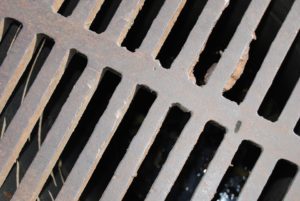 Oconee County in Georgia has something of a sewage problem. At least, the residents of the town of Calls Creek would say so. Sewage lines in the region are often routed along creeks and rivers, because they flow downhill. This keeps sewage flowing with the power of gravity, saving the trouble and expense of pump stations and costly machinery.
Oconee County in Georgia has something of a sewage problem. At least, the residents of the town of Calls Creek would say so. Sewage lines in the region are often routed along creeks and rivers, because they flow downhill. This keeps sewage flowing with the power of gravity, saving the trouble and expense of pump stations and costly machinery.
Right now an organization called the Friends of Calls Creek is opposing a measure to build such a gravity-flow sewage line through their town. This is largely due to a series of sewage leaks in the area over the last year. The most recent of which, last September, occurred due to a faulty float switch.
The September 10 Sewage Spill
Last autumn at the Watkinsville Cemetery Pump Station on Simonton Bridge Road, 5,400 gallons of wastewater were released into a tributary river that led directly to Calls Creek. According to a report filed with the Georgia Environmental Protection Division, the spill was caused by a “faulty float switch.”
“You never know when something like that is going to happen,” said Melvin Davis, Chairman of the Oconee County Board of Commissioners. “It can just be a malfunction, kind of like when the stopper in a commode hangs up occasionally. Everything is working fine and, the next thing you know, you’ve got a crack in the stopper and water is seeping through or it is stopped up and overflows.”
The spill followed a similar sewage event in August of the same year, as well as a 6,000 gallon spill even earlier in the year due to “mismanagement.”
New Sewer Pipeline Opposed
“Pipes break and pumps stop working,” said local writer Lee Becker at a Friends of Calls Creek meeting last week. The group is understandably skeptical following the thousands of gallons of spilled sewage they dealt with last year.
The problem: without the gravity-flow Calls Creek pipeline proposed by the Oconee County Utility Department, a forced pump sewage system would have to be built somewhere else – and those residents would likely raise similar opposition.
 The Importance of Float Switches in Wastewater & Sewage Treatment
The Importance of Float Switches in Wastewater & Sewage Treatment
Whatever Oconee County does moving forward, they would be well advised to make sure the kind of spills they’ve seen recently never happen again. Well trained workers, regularly maintained infrastructure, and many other factors go into that. One critical set of tools are float switches and other liquid level sensors.
Level sensors for wastewater treatment applications are used for functions like the following:
- High level alarms
- Emergency flow shut-off units
- Wet well management
- Sump pumps
- Chemical mixing and batching
- And more





